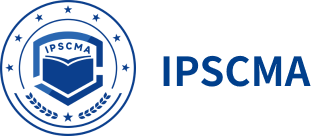In the context of the continuous adjustment of the global economic landscape, the importance of procurement negotiations is increasing day by day. According to Deloitte's 2023 Global Procurement Outlook report, 76% of companies believe that improving their procurement negotiation capabilities is the top priority to achieve cost optimization. With the rapid development of AIGC technology, procurement negotiations are undergoing unprecedented changes. This article will delve into the new trends, new methods and new thinking of procurement negotiation in the digital era.
In recent years, procurement negotiations have gradually evolved from the traditional face-to-face mode to the direction of digitalization and intelligence. McKinsey research shows that procurement teams that use digital tools can reduce procurement costs by an average of 12%-18%, which is 35% more efficient than traditional methods. This shift is not only reflected in the way communication is conducted, but also in the preparation of negotiations, the development of strategies and the evaluation of results.
The rise of digital procurement platforms has enabled negotiators to share data in real-time and track execution progress. For example, a global manufacturing company introduced a smart contract management system to shorten the contract negotiation cycle by 40%, while improving the level of terms and conditions standardization, and greatly reducing legal risks.
In the post-pandemic era, remote negotiation has become the new normal. According to statistics, in the first quarter of 2023, more than 65% of global procurement negotiations were conducted remotely through video conferencing and other means. This requires procurement staff to master special skills in online negotiation, including non-verbal communication, agenda control and atmosphere creation.
Artificial intelligence generation technology (AIGC) is reshaping the process of preparing for procurement negotiations. Through big data analysis and machine learning algorithms, procurement personnel can more accurately predict supplier quotation ranges and evaluate market trends. According to PwC, companies that use AI to assist decision-making have a 23% increase in negotiation success rates.
AIGC is also able to provide customized negotiation strategy suggestions for different scenarios through deep learning of historical negotiation cases. For example, a multinational retail company used an AI negotiation assistant to achieve an average cost savings of 8.5% in annual supplier price negotiations.
It is important to note that AIGC is not intended to completely replace manual negotiation, but rather as an augmented tool to assist procurement staff in making more informed decisions. According to a McKinsey survey, 90% of procurement executives believe that "human-machine collaboration" is the best model for future procurement negotiations.
In the context of frequent black swan events in the global supply chain, improving supply chain resilience has become an important topic in procurement negotiations. According to research by the Boston Consulting Group, 82% of companies ranked "supply chain resilience" as a top consideration in procurement negotiations in 2023, up 45 percentage points from 2019.
Building resilient supply chains requires a rethinking of traditional price-based negotiations. Modern procurement negotiation is more focused on building strategic partnerships with suppliers to jointly respond to market fluctuations. An automobile manufacturer established a "supplier innovation alliance" to achieve a 15% increase in R&D efficiency while ensuring stable supply. Supplier hierarchical management is also the key to improving the effectiveness of negotiations. By establishing a scientific evaluation system, procurement personnel can adopt differentiated negotiation strategies for different types of suppliers. According to statistics, enterprises that implement hierarchical management of suppliers can achieve an average of 20%-30% optimization of procurement costs. The integration of digital transformation and AIGC technology is reshaping the future of procurement negotiations. Procurement personnel need to master traditional negotiation skills, continuously improve digital capabilities, and learn to use new technologies to improve negotiation efficiency. It is expected that by 2025, more than 80% of procurement negotiations will incorporate AI-assisted decision-making tools. At the same time, in a complex and volatile international environment, balancing cost control and supply chain resilience will continue to test the wisdom of procurement personnel. It is recommended that enterprises focus on cultivating the strategic thinking ability of the procurement team and use data-driven methods to develop more scientific negotiation strategies.
